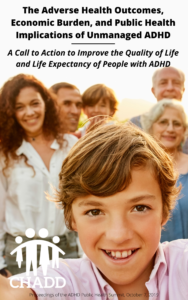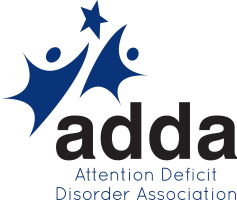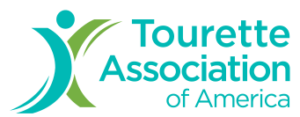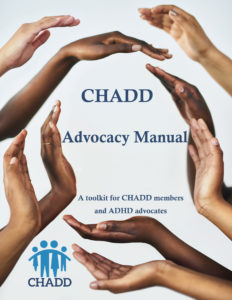Protecting ADHD Care: We Need You
Your Support and Advocacy Matters
CHADD seeks to shape the conversation on how society treats, accommodates, and views people affected by ADHD. Our community is made up of countless people affected by ADHD, their families, teachers, friends, and leaders in the fields of ADHD research, education, and mental health.
Your voice matters. Your experience with ADHD matters. Now is the time for you to take action in whatever way you are able to contribute. Knowing the challenges the ADHD community is facing, are you ready to pitch in with CHADD and be an advocate for your ADHD community?
Your story is incredibly valuable! Your testimonial will be a powerful tool in advocating for policies that support our mission, and we appreciate your role in helping us drive meaningful change.
Let your representatives know what matters—Section 504 support, equal rights for neurodiverse individuals, access to treatment, and continued funding. Your grassroots efforts are essential in shaping policies for our community.
When you donate to CHADD, your dollars go right to work. With your most generous donation, we can do more—more evidence-based information, more top-notch support, and more steadfast advocacy.
ADVOCACY NEWS
Updated May 2025
Stand Up for Students With ADHD! Protect the Department of Education!
A major change in Washington is putting the rights of students with ADHD at real risk. The US Department of Education has started moving key programs to other federal agencies—an action that could weaken the Individuals with Disabilities Education Act (IDEA) and its Section 504 protections that millions of families count on every day.
The Office of Special Education and Rehabilitative Services and the Office for Civil Rights, the offices within the Department of Education that ensure students receive disability support services and are treated fairly, have not been moved—yet. We still have time, but only if we act now.
Your voice can help stop these transfers and protect the Department of Education from being dismantled.
Send a message to your members of Congress. Your message will tell them to block these moves and keep these offices where they belong—and working for our kids.
Treatment options for ADHD
ADHD is best treated through a combination of approaches. For many people that may include lifestyle support, behavior management or parent training, academic or workplace accommodations, therapy, and/or medication. Every person’s treatment plan should be tailored to their specific needs and not every plan will include the listed approaches.
Recent executive orders could reduce or eliminate the choices an individual, or a parent for their child, and their ADHD specialist could make in designing their treatment plan. Changing the established, evidence-based standard of care could lead some insurance organizations to no longer cover prescribed treatment, whether that is parent training programs, therapy, or medication to treat ADHD symptoms. This could place care options out of financial reach for the majority of people in the ADHD community.
Funding that helps support CHADD and the ADHD community
Research on ADHD has a long history of receiving support, both from public universities and research hospitals and through funding from various agencies in the federal government. Many research universities and centers are now facing a loss of federal funding or a steep decrease in funding which will affect medical research, including for ADHD, for at least a generation. Health and community organizations are worried that critical funding awarded by or from contracts with the federal government will be discontinued.
CHADD hosts the National Resource Center on ADHD, the national clearing house for the latest evidence-based information on ADHD, sharing information to individuals and families that they can use today to improve their lives. The NRC makes CHADD unique, as all its information is vetted by leading professionals on its advisory board and researchers on ADHD connected with the CDC.
The NRC is primarily funded through a cooperative agreement with the Centers for Disease Control and Prevention’s National Center on Birth Defects and Developmental Disabilities. It is the premier program for disseminating accurate information on ADHD and providing support for families who have loved ones with ADHD.
Without this federal support, CHADD would have to seek other sources of funding to continue to provide these resources to the ADHD community. We know there are many generous donors and endowment organizations, but very few of them can make up the financial gap if federal support is discontinued. It would mean a reduction in the valuable services CHADD provides for the ADHD community.
Section 504 protections, in both educational and workplace settings
Groundbreaking at the time, Section 504 of the Rehabilitation Act of 1973 prohibits discrimination based on a person’s disability, including ADHD. This law has opened doors for students and adults to receive appropriate accommodations at school and in the workplace, allowing them to be successful. It has helped children become more successful students and prevent ADHD from impeding their learning. For many adults, it has allowed them reach their career goals.
Recent court challenges to Section 504 could mean a weakening of those rights and protections in academic and workplace settings. Depending on the federal court’s final rulings, it could also mean that Section 504 would be eliminated entirely, along with the protections and accommodations children and adults with ADHD currently receive.
CHADD’s advocacy and public policy committee is following this situation closely and will join with other organizations in encouraging the courts to affirm and continue to support Section 504.
Progress made in the availability of evidence-based ADHD information
CHADD's National Resource Center operates the only ADHD helpline in the United States, taking more than 2,500 phone calls and email requests in 2024. It maintains a database of specialists across the country, including resources for lifestyle support such as coaching, diet, and exercise. It has a catalogue of evidence-based information on all aspects of ADHD for children and adults that is entirely free to the public.
CHADD’s insistence on science-based information set the standard. Today, there are websites, magazines, and conferences that provide accurate information on ADHD because CHADD insisted on no less in our publications.
The work of disseminating accurate, science-based and evidence-based information is at risk. There are many influencers and organizations that want a place at the table where ADHD conversations are held—and not all of those organizations are willing to meet that high standard of providing accurate information. Sadly, some of these organizations trade in misinformation and fears about the science of ADHD and use the opportunity to push false claims.
CURRENT ISSUES
Sorry, we couldn't find any posts. Please try a different search.
As the nation’s leading organization dedicated to children and adults with ADHD, CHADD comments on media coverage that contains misleading or inaccurate information. This response pertains to The New York Times Magazine article by Paul Tough, “Have We Been Thinking About A.D.H.D. All Wrong?” published on April 13, 2025, and the subsequent podcast released on…
As the nation’s leading organization dedicated to children and adults with attention deficit hyperactivity disorder (ADHD), CHADD believes it is essential to respond when misleading or inaccurate information is released that may have an impact on public understanding and access to evidence-based ADHD care. The recently released Make America Healthy Again (MAHA) report—issued by the MAHA…
In service to the Attention Deficit Hyperactivity Disorder (ADHD) community, CHADD has thoroughly reviewed the President’s Executive Order establishing the Make America Healthy Again Commission. We were encouraged by planned efforts to improve public health through better nutrition, sleep, and exercise. Such improvements are valuable and benefit all individuals, including those with ADHD. These factors…
ADHD Policy Briefing: Analysis and Impact of Federal Healthcare and Education Policies Featuring Matthew J. Gormley, PhD; Mary V. Solanto, PhD; Pheona Walker; and Max Wiznitzer, MD Recorded April 8, 2025 Download Slides Several proposed federal policies have the potential to affect ADHD diagnosis, treatment, and educational support for individuals and families. Experts in ADHD…
As we work to protect access to ADHD treatment, accurate information, and the support so many of us rely on, your advocacy matters. ADHD affects about eleven percent of children and six percent of adults, equaling an estimated 22 million people in the United States. ADHD is one of the most-studied health conditions in the…
Leading the Way The First Guidelines for the Clinical Diagnosis and Treatment of Adult ADHD in the United States Healthcare providers in the United States are not taught how to diagnose and treat ADHD in adults. The absence of clinical practice guidelines for adults has created a significant gap in mental healthcare across the country.…
As October marks National ADHD Awareness Month, we stand at a critical juncture to address the public health concern posed by attention-deficit/hyperactivity disorder (ADHD). We urge you to contact your senators to ask them to support the at least 22.6 million individuals in the United States with ADHD, along with their families, by increasing funding…
Featuring Dr. Peter Jensen, MD. Dr. Peter Jensen, founder and Board Chair of the REACH Institute, is the director of a coalition of national organizations that are developing adult ADHD diagnosis and treatment guidelines for use in the United States, a joint effort of CHADD and APSARD.
ADDITIONAL ACTIONS
Volunteer with CHADD
If you would like to donate your time, specialized skills, or expertise to our advocacy efforts, please contact our Advocacy and Public Policy Committee.
Contact CHADD
Do you have great ideas for advocacy efforts? Are you able to provide pro bono services? Do you have expertise in education law, coalition organizing, or media relations? Complete our Call to Action survey and share your insight.
Analysis and Impact of Federal Healthcare and Education Policies
Several proposed federal policies have the potential to affect ADHD diagnosis, treatment, and educational support for individuals and families. Experts in ADHD diagnosis and treatment will review research-based responses to the MAHA Commission's claims about ADHD and discuss the critical role the US Department of Education plays in supporting students who have ADHD.
Apply to CHADD Committees
Nominations for Committee positions will be accepted beginning the third Monday in February through the third Sunday in March. Check back for application openings in February 2026!
ADVOCACY PARTNERS
U.S. FEDERAL GOVERNMENT WEBSITES
RESOURCES
WHITE PAPER
 The Adverse Health Outcomes, Economic Burden, and Public Health Implications of Unmanaged Attention Deficit Hyperactivity Disorder (ADHD): A Call to Action to Improve the Quality of Life and Life Expectancy of People with ADHD
The Adverse Health Outcomes, Economic Burden, and Public Health Implications of Unmanaged Attention Deficit Hyperactivity Disorder (ADHD): A Call to Action to Improve the Quality of Life and Life Expectancy of People with ADHD
Proceedings of the ADHD Public Health Summit
Washington, DC
October 7, 2019
Presented by Children and Adults with Attention-Deficit/ Hyperactivity Disorder (CHADD)









 CHADD Advocacy Manual
CHADD Advocacy Manual